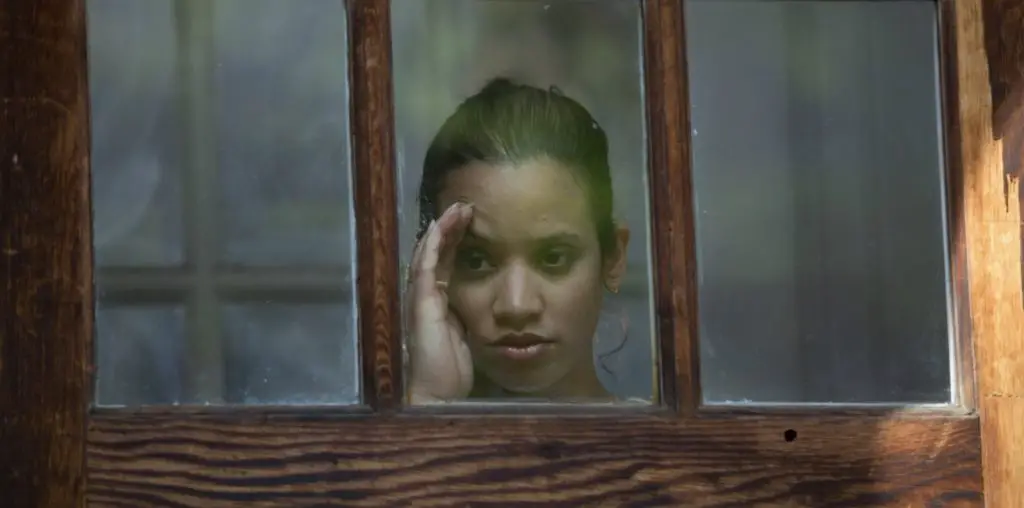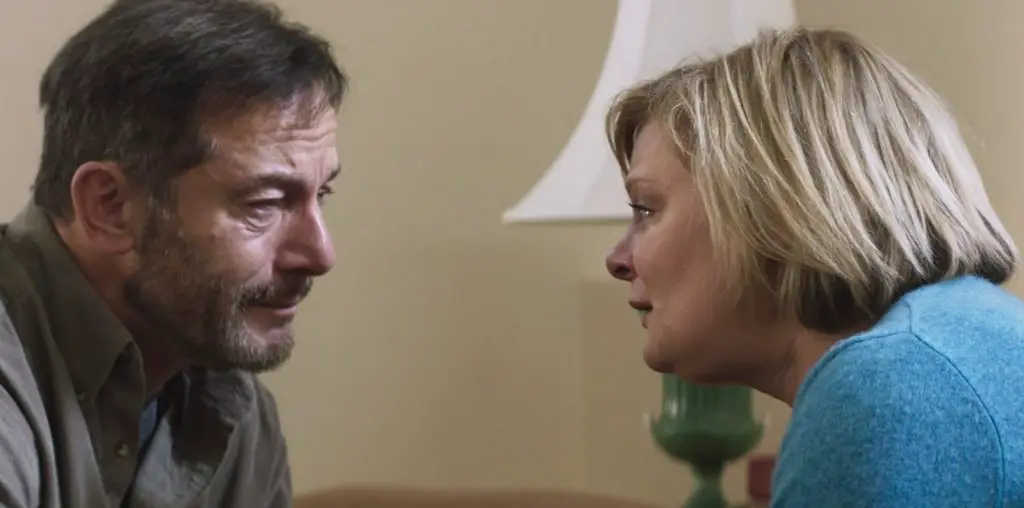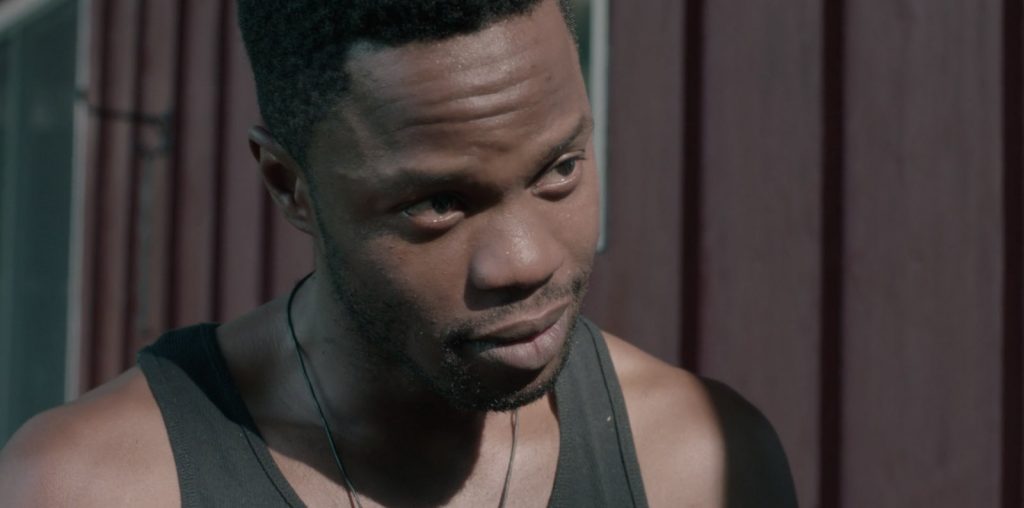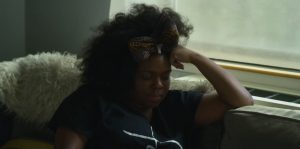
Hartmann is just the right actor for the task. In a rather fearless performance, she is capable of conveying that internal struggle and perpetual self-doubt that can often sink the most motivated of people. From dancing to cooking, we watch Lisa struggle to regain her sense of self, and Hartmann provides a lived-in performance that feels honest and candid.
Despite the narrative limits of the story, writer/director Emeka Mbadiwe stages some inventive shots throughout. While attempting a dance routine in the mirror, Mbadiwe places the camera close to the ground, so the actor appears towering but positions the mirror so that the reflection she sees is much more diminutive and inconsequential. To the left of the mirror, a Gerhard Richter image of a slender, elegant woman serves as what Lisa perhaps sees as “ideal.”
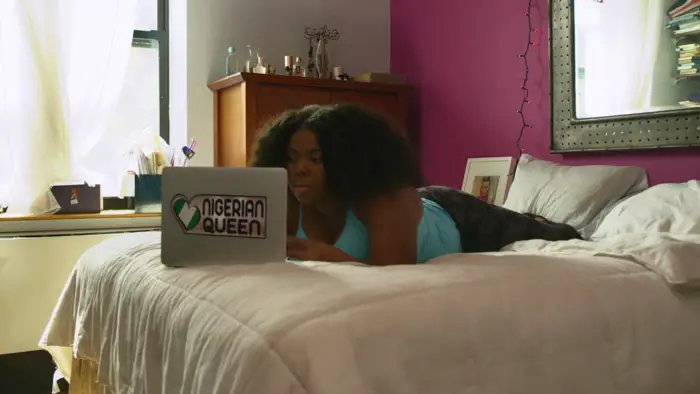
“…a montage of people sharing signs of self-love and empowerment that strengthens its message.”
There are other shining moments in which Hartmann embraces her challenge by grooving around the kitchen unpacking all the ingredients for her healthy meal, only to stare at it all and text her mom, “How do you make quinoa?” And when she disrobes for herself, staring into the mirror, it reflects a tear slide down her cheek.
Not everything works in Lock Down Love, though, and it could have easily been trimmed to about half its runtime, and a sequence in which Lisa finds inspiration in a book that just happens to be written by the film’s writer/director seems a tad too self-serving. And the hook the movie’s narrative hangs is rather weak when revealed and does not hold up to scrutiny.
That said, when we see Lisa tear through her dance routine and raise her fist in the air, it’s easy to share in her elation. The film concludes with a montage of people sharing signs of self-love and empowerment that strengthens its message. Above all that, though, it is Hartmann who gives us reason to remain in lockdown with Lock Down Love.
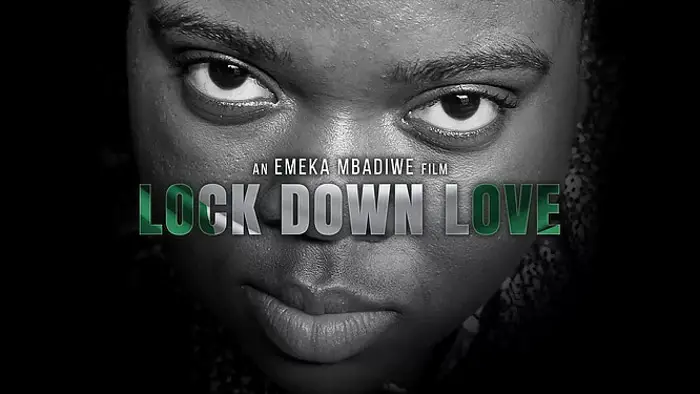
"…Hartmann provides a lived-in performance that feels honest and candid."
